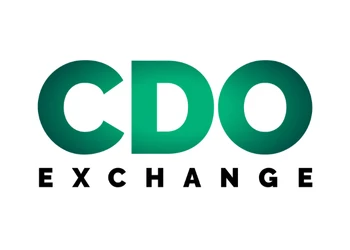Apple vs. Facebook and the War Over Data Governance
Is data privacy an impediment to innovation or a fundamental human right?
Add bookmark
Despite their synergistic growth over the past 10 years, Apple and Facebook have always been at odds with each other, at least from a cultural standpoint. While Apple built an empire on secrecy, gruelling iterative design and customer-centricity, Facebook has embraced “radical transparency”, crowdsourced innovation and an advertising-based business model fueled by direct data monetization.
Now, as their business interests come into direct conflict with each other, this animosity is fueling a new debate over data privacy.
A Brief History of Data Misuse & Redemption
Since 2006, Facebook has engaged in a number of high profile, data-privacy related blunders, running afoul of regulatory agencies and the public alike. For example:
- In 2007 Facebook found itself in hot water after allowing companies to not only track user shopping habits, but also notify a user’s Facebook friends when they purchased specific items without consent. As a result, Facebook was penalized by the FTC for “[deceiving] consumers by telling them they could keep their information on Facebook private, and then repeatedly allowing it to be shared and made public.”
- A 2014 mood-manipulation experiment whereby Facebook altered some user’s news feeds to show more positive or negative posts with the intention of measuring how social media can impact a person’s emotions.
- In March 2018, a whistleblower revealed that Cambridge Analytica had harvested over 87 million user profiles which inspired the FTC to, once again, investigate Facebook for potential wrongdoings. A year later, the FTC fined Facebook a record $5 billion for misleading users and failing to protect their privacy.
Since 2018, Facebook has tightened its approach to data privacy and given users more control over how their personal data is accessed. However, as its business model is built around targeted advertisements, Facebook is likely to remain stalwart in its overall position.
Apple too has been implicated in a number of data privacy related scandals from spying on customers via the Siri app to massive data breaches. Make no mistake, Apple’s business success is also rooted in surveillance. However, in response to (or in spite of, depending on who you ask) the public outcry over the aforementioned scandals, Apple is not only reframing its approach to data privacy, it’s making data privacy and trust a key selling point.
For a number of years now, Apple has been slowly limiting how much data apps can collect and use. First Apple gave its users the option to turn off location tracking then, last year, it mandated app providers in iOS to spell out what data they collect through “nutrition labels” in the App Store.
In January of 2021, they took things a step further by announcing its new App Tracking Transparency (ATT) feature that requires apps to request permission from users before tracking them across other apps and websites. It was this mandate that has Facebook and other digital advertisers up in arms.
As Tim Cook explained at a recent conference, “At a moment of rampant disinformation and conspiracy theories juiced by algorithms, we can no longer turn a blind eye to a theory of technology that says all engagement is good engagement -- the longer the better -- and all with the goal of collecting as much data as possible. It is long past time to stop pretending that this approach doesn't come with a cost -- of polarization, of lost trust and, yes, of violence.” Also adding, “together, we must send a universal, humanistic response to those who claim a right to users’ private information about what should not and will not be tolerated.”
In response to the announcement of ATT, a Facebook spokesperson stated, “Apple’s new prompt is designed to present a false trade-off between personalised ads and privacy; when in fact we can provide both. Apple is doing this to self-preference their own services and targeted advertising products.” Facebook even purchased full page newspaper ads alleging this new feature would hurt small businesses while its CEO Mark Zuckerberg allegedly told employees “‘we need to inflict pain’ on Tim Cook and Apple.”
But what does it mean for you?
Though the ATT feature and Apple’s more rigorous approach to data privacy may not affect your business directly, this ongoing debate will define how data privacy is perceived and evaluated in the eyes of the public. Will data privacy be considered a human right? Or an impediment to innovation? Either way, data privacy is increasingly evolving from a regulatory/compliance issue into a strategic one.
All too often we at ADA hear about companies who, looking to cultivate their advanced analytics capabilities, invest heavily into acquiring as much data as they possibly can but then fall short when it comes to ensuring it’s properly handled, protected and utilized. Not only does this approach expose companies to considerable risk, these “data hoarding” habits also cost companies money and slows down innovation.
Establishing a robust but adaptable data governance practice that positions data privacy as an asset versus a regulatory nuisance will likely elevate your data strategy while paving the way for future ethical data monetization efforts and AI development. Afterall, despite what these tech giants say, data privacy and innovation are not necessarily at odds. Instead, when taken together, they can serve as guideposts, lighting the way towards future growth and technological advancement.
Become a Member of the AI, Data & Analytics Network so you don’t miss any of these updates.




























